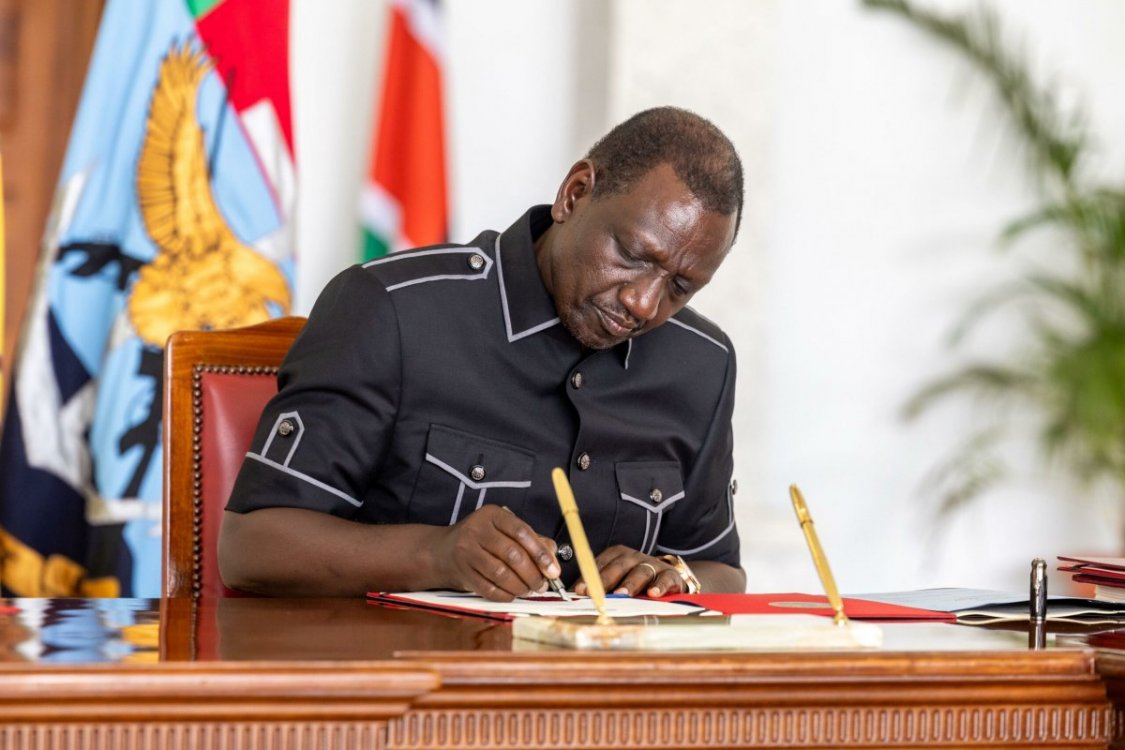Device assemblers push for VAT exemption on imported inputs

The East Africa Device Assembly Kenya Limited (EADAK), a local smartphone manufacturer, is proposing the exemption of imports of inputs for locally assembled mobile phones from value-added tax (VAT) to enable the continuous supply of affordable smartphones in the country.
Finance Bill 2025/26, Paragraphs 36 (0) read together with paragraph 37(c) of the Finance Bill proposes to exempt from VAT “the supply of locally assembled and manufactured mobile phones” by introducing it to the First Schedule to the VAT Act while deleting the VAT zero-rating provision within the Second Schedule to the VAT Act.
According to Johnstone Kamunde, Chief Finance Officer of EADAK, the change in the tax policy will have adverse effects on the industry as it will increase the costs of local assembly and therefore increase the prices of phones.
“So, we are saying, please maintain the proposal to exempt the supply of locally assembled smartphones but in addition to that, we are requesting that you also exempt the VAT on inputs for raw materials that can be supplied to a local manufacturer of local smartphones,” he said during the public hearings on the Finance Bill 2025 on May 27, 2025.
Typically, when a product is VAT-exempt, the manufacturer does not charge VAT on its sale.
However, the manufacturer still pays VAT on the goods and services (inputs) used in the production process—such as raw materials, components, and utilities.
Under exemption, the manufacturer cannot reclaim or offset this input VAT against any output VAT, because no output VAT is being charged.
On the other hand, on zero rating, manufacturers charge 0 per cent VAT on their sales but can still claim input VAT on purchases, ensuring that VAT does not become a cost at any stage of production.
Credit costs
As a result of the Zero rating, they noted that the government is also facing challenges on matters of VAT returns, with the company in particular, waiting for the refunds of Sh1.8 billion.
This, they argue, limits cash flow in the business, leading to room for credit costs. The companies are also largely unable to reinvest their resources, as a result, limiting scalability and the creation of employment opportunities.
“So now the Finance Bill is proposing to exempt the supply of local money to manufacture funds, which is okay. This is because the zero rating has actually led to EADAK accumulating Ksh1.8 billion, which is still sitting at a very high quality. However, because it cannot be paid fast enough, there is an economic impact on the cost of credit,” Kamunde added.
Additionally, the company is also seeking the exemption of imported inputs and/or raw materials supplied to approved mobile phone assemblers and manufacturers in the country for local assembly and manufacture of mobile phones, from VAT.
The company argued that this, will not only cure the cascading effect of the input VAT cost along the supply chain but will also have a less adverse impact on pricing to the consumer compared to exempting the final product while retaining a standard rating of 16 per cent VAT on inputs, as is currently the case.
Cost of the phone
“A thousand shilling is the cost of the phone, 160 is the VAT cost of the inputs, and then if you have to apply a margin on all of your costs, the VAT is part of your costs because you cannot recover it and so your customer has to pay a bit more,” Kamunde explained.
At the same time, EADAK is proposing the VAT exemption of supply of locally assembled routers, Know Your Client and point of sale devices, smart and internet of things devices, customer premise equipment devices, modems and laptops and desktops, noting that they are the key enablers to internet connectivity which the government is currently focused on boosting.
“But similar to the phones, we are saying don’t just exempt the sale of the finished goods, please also exempt the payment because if we don’t do that, then we will still be carrying an inherent creative cost which the consumer must bear,” he urged.
Meanwhile, the company currently offers one of the most affordable smart devices in the market at an ex-factory price of approximately Ksh6,000, directly contributing to the increasing smartphone penetration.
In addition, EADAK is investing in research and development to produce an ultra-low-cost 4G cloud smartphone priced below $20 (Ksh2,580).















